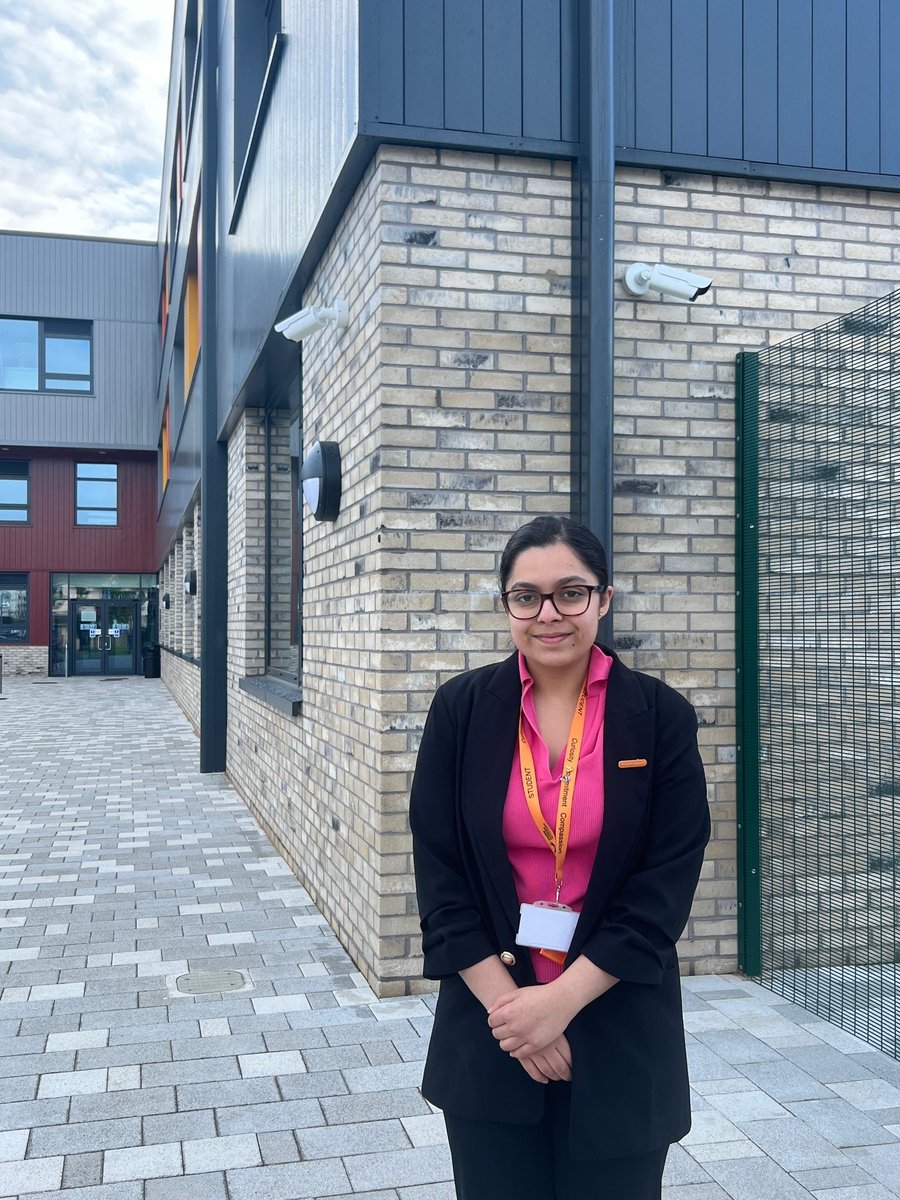404 Error: Page cannot be found
Page : https://www.harrisrainhamsixthform.org.uk//849/e-safety
The page you were looking for cannot be found. It may have moved or been deleted.

15/07/24
Our sixth formers attended a day at Stubbers Adventure Centre, where they demonstrated excellent teamwork, kindness, and encouragement towards one another. They participated in a variety of activities, including kayaking, rifle shooting, axe throwing, wall climbing, raft building pic.twitter.com/QgkOiB2wY3
follow us @HarrisRainhamSF
12/07/24
Their placements included solicitors, NHS hospitals, engineering companies, roles within the education sector, dentist practices, pharmacies, insurance brokers, Network Rail, banks, tech companies, and many more.
follow us @HarrisRainhamSF

12/07/24
Year 12 students have successfully completed their work experience week, demonstrating commendable effort in securing placements in highly competitive areas. Students have acquired valuable lifelong skills that will significantly enhance their competitive profiles. pic.twitter.com/7Uf4YISO3n
follow us @HarrisRainhamSF

08/07/24
A huge thanks goes to Prisca for organising the cultural food stall and to all the students who cooked and baked to make the event so special. Thank you to those who wore clothes representing their cultural heritage. It was a pleasure to celebrate the diversity we have at HSRF. pic.twitter.com/ul0MRr3uuZ
follow us @HarrisRainhamSF

08/07/24
Culture Day at HRSF was a wonderful celebration of culture, diversity, and inclusion. It was fantastic to see so many of our students wearing their cultural attire and educating others through talks in assembly. pic.twitter.com/e5hth8sqb8
follow us @HarrisRainhamSF

08/07/24
Students have been eagerly preparing for our HSRF Culture Day, a celebration of culture, diversity, and inclusion. This is organised by our Diversity and Inclusion lead, Alicia, with valuable assistance from our student president, Sarah, along with the student leadership team. pic.twitter.com/nPg5o8YJj4
follow us @HarrisRainhamSF
08/07/24
This experience sparked many interesting conversations throughout the day, particularly about the abstract ideas behind some of the works. I am excited to see how this exposure will influence the students' personal investigations and the creative work they produce.
follow us @HarrisRainhamSF

08/07/24
This week, our A Level art students visited two prominent London galleries: The National Gallery and The Tate Modern. They had the opportunity to see a vast range of artworks, from the very traditional to the ultra-modern. pic.twitter.com/pGYmnkQfCE
follow us @HarrisRainhamSF
06/06/24
Students were given a tour of the grand library and an academic referencing workshop by the university’s librarians. Followed by an undergraduate style lecture by Dr Nicola Abbott, in her specialism, on social psychology and bystanders.
follow us @HarrisRainhamSF

06/06/24
HRSF psychology and sociology students were treated to an academic outreach programme put on by the Institute of Education at University College London. pic.twitter.com/DhC2KZjuGh
follow us @HarrisRainhamSF

04/06/24
This week a group of our sixth formers attended an English Literature event at Royal Holloway, University of London. They received keynote lectures on key texts such as Shakespeare’s Othello and were given a tour around the beautiful campus. pic.twitter.com/UAC8SQZix9
follow us @HarrisRainhamSF
04/06/24
Mrs Ward shared her career in politics, including her time working as part of the Foreign Office, and her current work representing local residents in her ward. Students and staff thoroughly enjoyed Mrs Ward's visit and found it insightful to see how local government operates.
follow us @HarrisRainhamSF

04/06/24
On Tuesday 22nd May, Politics students at Harris Rainham Sixth Form received a visit from Mrs Lee Ward, a member of Thurrock Council. Mrs Ward is the councillor for the West Thurrock and South Stifford ward and represents the Labour Party. pic.twitter.com/nsYCMfU4aR
follow us @HarrisRainhamSF

04/06/24
HRSF has a Chess Society! Chess is a game of objectivity, concentration and commitment. It has been associated with better educational outcomes, helping students to improve their memory and deepen their focus. If you are interested in joining: Music Room- Thursday Lunch. pic.twitter.com/XbfeYKPZ1S
follow us @HarrisRainhamSF
04/06/24
Enoch has successfully achieved a place on the In2STEM pathway. This programme offers a blend of online and in-person activities, equipping sixth formers with the skills, knowledge and confidence needed to excel in STEM.
follow us @HarrisRainhamSF

04/06/24
We wanted to acknowledge more fantastic achievements this week. Enoch and Harrison have both been accepted onto different STEM programmes which will support them on their journey towards university and STEM focused careers. pic.twitter.com/XvyqpWbJ3e
follow us @HarrisRainhamSF

03/05/24
Congratulations to Aliyah who has been accepted onto the Target Bath programme! Target Bath supports students of Black African and Caribbean heritage to gain places at the University of Bath. pic.twitter.com/uuPGanRVqC
follow us @HarrisRainhamSF

03/05/24
Congratulations to Jomi who has been accepted onto the Bright Ideas Medicine Pathway. Jomi has already benefitted from Saturday sessions and will soon be attending a medical summer school at Anglia Ruskin University. What a fantastic opportunity! pic.twitter.com/auietyIn8K
follow us @HarrisRainhamSF

29/04/24
We wanted to congratulate Oden who has been invited to attend an Insight Day with Macquarie, a large asset management group. Oden will then have the opportunity to apply for a work placement and a possible financial scholarship for university through the company. Well done! pic.twitter.com/r42EW8PNTL
follow us @HarrisRainhamSF

29/04/24
We wanted to highlight a fantastic achievement from Nimrut, who has been selected to take part in the Sutton Trust US Programme following an application process. Nimrut is one of 100 students who were selected nationally, and we are very proud as a sixth form team. pic.twitter.com/IZaMvueaX9
follow us @HarrisRainhamSF
The page you were looking for cannot be found. It may have moved or been deleted.